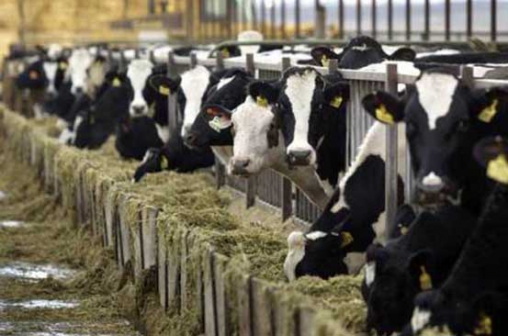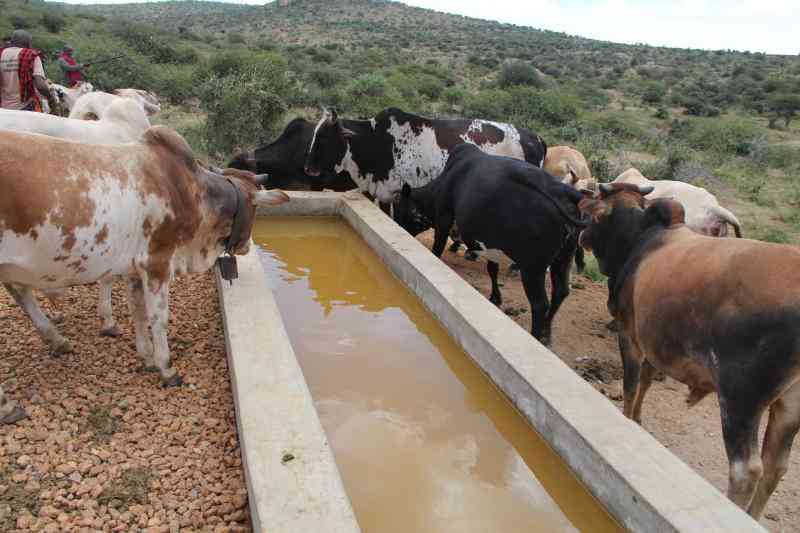
Do you know that organic milk, eggs or meat are a form of value addition that can add to your profits? With certification and branding you can easily join the national, regional or global market as an organic farmer.
Organic farming is taking the globe by storm. It is offering a worthy alternative for an increasing consumer group conscious about their environment and animal rights. The farming model is buoyed by disadvantages of overzealous intensive production that places a lot of premium on quantity rather than quality production and which further infringes on animal welfare and disregards environmental conservation.
The environmental and animal welfare conscious market segment, which is growing by the day, is a strong advocate for organically produced animal products. Organic livestock farming refers to a system of production that uses biological and natural principles while observing animal welfare principles.
Organic products fetch more money and have a faithful market segment. According to Food and Agriculture Organisation (FAO) and World Health Organisation (WHO), organic farming promotes agro-system health, including biodiversity, biological cycles and soil biological activities.
Organic farming follows strict certification measures to lock out unscrupulous farmers that may want to benefit from the high prices charged for organic products. These measures ensure that the bare minimum standards are met at every step of organic production.
Labelling is very important in the marketing of organic products and the label must be fool proof. It thus follows that as a farmer, the first step will be to find out if such certification bodies exist in your locality in addition to having a well prepared organic production plan.
Milk, eggs and meat are the main products from organic livestock production; although myriad other by products can be manufactured from them. The Kenya Organic Agriculture Network (Koan) assists local organic farmers to access national, regional and international markets through awareness creation on organic farming, certification and labelling.
Organic livestock farming requires that you apply organic on-farm inputs with very minimal off farm inputs. Organic livestock production therefore necessitates application of extensive rather than intensive production system. The feeds to be fed to the animals must also be cultivated organically; using traditional tillage and application of only organic manure.
In other words, an organic farm should be a self-contained system. The emphasis is on utilisation of naturally available and renewable on-farm resources. In organic livestock production, the animals are allowed to have natural conditions as much as possible to allow them to exhibit their normal behaviour.
In as much as organic products have a high quality, the rigorous production system may only produce relatively low quantities.
Nonetheless, this is a hurdle that can be jumped with good planning. Organic farming is a stepwise venture and is premised on healthy soils that produce the organic feeds, healthy organic feeds that go into production of organic products, a healthy environment, biosecurity measures, minimal stress levels if any and a sustained healthy immune system in livestock.
If planning to venture into organic livestock production, do note that you will have to do more grazing, restrict use of antibiotics, forget about embryo transfer technology though you may use artificial insemination.
Below is an elaboration of some measures that you will have to put in place for your farm to be certified as being organic:
Records
Stay informed. Subscribe to our newsletter
To benefit from good prices, records are a must as they provide documented evidence that all the requirements have been met. To verify the organic status of animals, production, harvesting and handling practices associated with the organic products and animals, records must be maintained.
Different certifying bodies will require varying lengths of years for which these records must be kept; you need to know the number of years since it will affect your farm plan. Key records will include herd health, reproduction, pasture management and feeding among others.
Housing
As an organic farmer, you must forget about tethering or zero grazing and allow the animal to graze freely in natural vegetation. The vegetation shouldn’t have benefited from inorganic but only organic manure. Your organic livestock should have free access to their environment and should be provided with facilities to express the species specific behaviours to associate, play with minimal stress.
For example, if they are goats that love climbing trees, they should be allowed to do that unrestricted within their environment. Even bedding material must be purely organic as animals will sometimes feed on it. The animals must have access to fresh air, sunshine, fresh drinking water.
Feeding
Feed rations given to organically reared livestock must also be produced organically. When you approach your certification body, they will require a documented plan on how you intend to produce or acquire organic feed for your stock throughout the year. The best feed for organic livestock production system is pasture during the season and a mix of different grasses, legumes will help balance the diet. Grains produced organically can be added to the diet. It is difficult to attain the requisite nutritional level simply with feeds you will need minerals and vitamins too; on this your certifying body will advise.
Health Management
Organic livestock production emphasises the “prevention is better than cure” principle. This is why organic producers are required to select local breeds best suited to the particular locality where they will be kept. Biosecurity measures which aim to reduce introduction of disease causing microorganisms into your farm must be observed in addition to provision of a free environment to minimize stress and improve immunity.
Use of antibiotics to prevent diseases is not allowed in organic livestock production so is the use of growth promotion hormones or other drugs for growth promotion. Strive to control internal parasites using proper pasture management strategies for example don’t graze weaned heifers after cows, use rotational grazing to break parasite cycles.
Herbal cures are recommended in organic livestock production. All vaccines are permitted in organic livestock production since they are made from live organisms. Serum products prepared by veterinarians to treat a specific disease condition are also permitted in organic livestock production.
Biosecurity
Observing biosecurity measures work towards minimizing entry of diseases into your farm. Minimise the number of visitors into your farm. Provide a foot bath at the farm gate to disinfect the footwear of any visitors into the farm.
Dr Othieno is a veterinary surgeon working with the Kenya Tsetse and Trypanosomiasis Eradication Council (KENTTEC)
 The Standard Group Plc is a
multi-media organization with investments in media platforms spanning newspaper
print operations, television, radio broadcasting, digital and online services. The
Standard Group is recognized as a leading multi-media house in Kenya with a key
influence in matters of national and international interest.
The Standard Group Plc is a
multi-media organization with investments in media platforms spanning newspaper
print operations, television, radio broadcasting, digital and online services. The
Standard Group is recognized as a leading multi-media house in Kenya with a key
influence in matters of national and international interest.
 The Standard Group Plc is a
multi-media organization with investments in media platforms spanning newspaper
print operations, television, radio broadcasting, digital and online services. The
Standard Group is recognized as a leading multi-media house in Kenya with a key
influence in matters of national and international interest.
The Standard Group Plc is a
multi-media organization with investments in media platforms spanning newspaper
print operations, television, radio broadcasting, digital and online services. The
Standard Group is recognized as a leading multi-media house in Kenya with a key
influence in matters of national and international interest.










